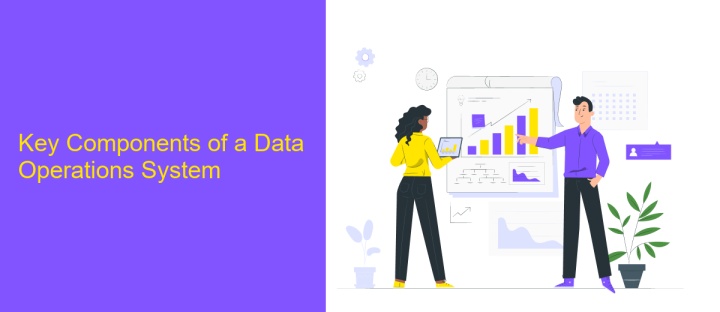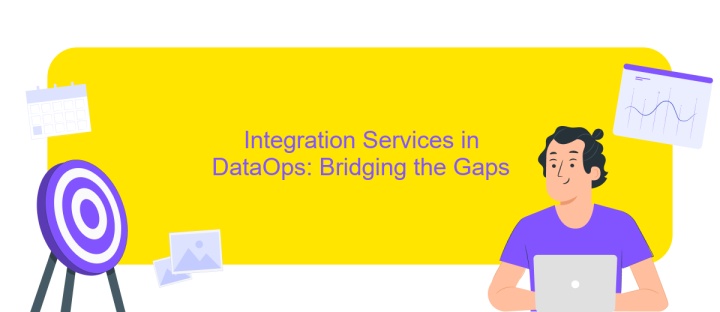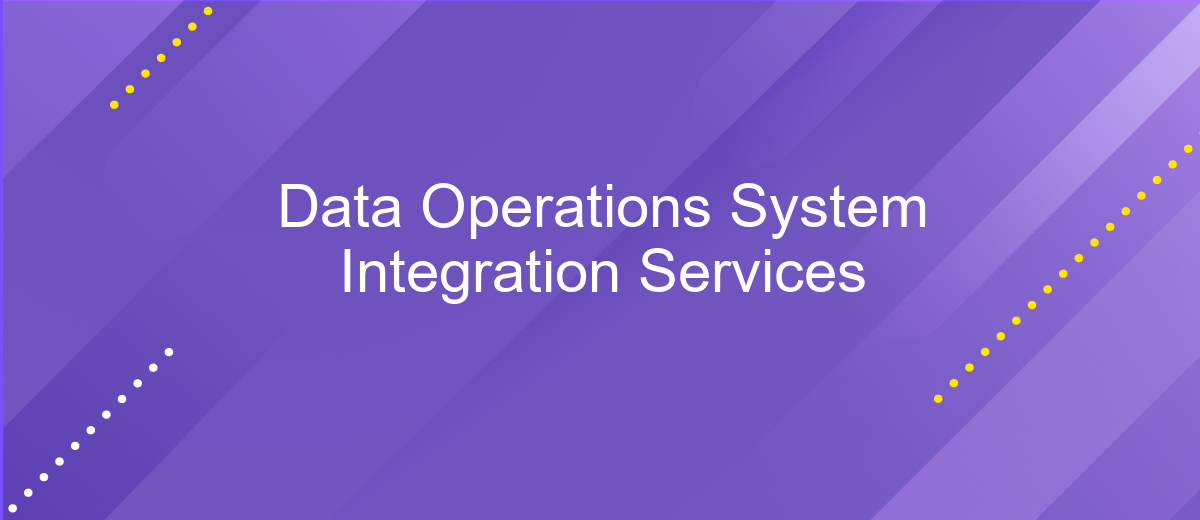Data Operations System Integration Services
In today's rapidly evolving digital landscape, Data Operations System Integration Services have become essential for businesses striving to maintain competitive advantages. These services streamline and optimize data processes, ensuring seamless integration across various platforms and systems. By harnessing the power of advanced technologies, organizations can enhance their operational efficiency, improve decision-making, and drive innovation, ultimately leading to sustainable growth and success in the ever-changing market environment.
Understanding Data Operations (DataOps) and its Importance
Data Operations (DataOps) is a collaborative data management practice that focuses on improving the communication, integration, and automation of data flows between data managers and data consumers. It aims to enhance the quality and speed of data analytics by streamlining processes and reducing errors. DataOps brings together teams across an organization to ensure data is accessible, reliable, and timely, fostering a culture of continuous improvement and agility.
- Enhances data quality and reliability through automated testing and monitoring.
- Speeds up data delivery by automating data pipelines and workflows.
- Facilitates better collaboration between IT and data teams, breaking down silos.
- Improves decision-making by providing timely and accurate data insights.
Understanding the importance of DataOps is crucial for organizations that rely heavily on data-driven decisions. By implementing DataOps, companies can achieve faster time-to-insight, reduce operational costs, and increase overall efficiency. The approach emphasizes a shift from traditional data management methods to a more dynamic and responsive model, ensuring that data remains a strategic asset that drives business value.
Key Components of a Data Operations System

A robust Data Operations System is built on several key components that ensure seamless data management and integration. The first component is data integration, which involves consolidating data from various sources into a unified system. This process is crucial for maintaining data consistency and accessibility across different platforms. Tools like ApiX-Drive facilitate this by providing a user-friendly interface for automating data transfers, reducing manual effort, and minimizing errors. By leveraging such services, organizations can streamline their workflows and ensure that data flows smoothly between disparate systems.
Another essential component is data governance, which involves establishing policies and procedures to manage data integrity, security, and compliance. This ensures that data is accurate, reliable, and accessible to authorized users while protecting it from unauthorized access. Additionally, data analytics tools play a critical role in transforming raw data into actionable insights. These tools enable organizations to make informed decisions by analyzing trends and patterns. Together, these components form the backbone of an effective Data Operations System, driving efficiency and innovation in data-driven environments.
Integration Services in DataOps: Bridging the Gaps

In the rapidly evolving landscape of data management, DataOps has emerged as a crucial methodology for streamlining data workflows. Integration services play a pivotal role in this ecosystem, ensuring seamless connectivity between disparate data sources and systems. By bridging operational silos, these services enhance collaboration, reduce latency, and improve data quality. Organizations can thus achieve more efficient data processing, leading to better decision-making and innovation.
- Data Connectivity: Integration services provide robust connectors and APIs to unify various data sources, ensuring consistent data flow.
- Process Automation: They facilitate the automation of repetitive tasks, enabling teams to focus on strategic initiatives.
- Error Handling: Advanced integration tools offer real-time monitoring and error resolution, minimizing disruptions in data operations.
By leveraging integration services within DataOps, organizations can effectively bridge the gaps between data silos, technology stacks, and teams. This holistic approach not only accelerates data delivery but also fosters a culture of agility and continuous improvement. As a result, businesses are better equipped to adapt to changing market demands and harness the full potential of their data assets.
Benefits of Effective DataOps System Integration

Integrating effective DataOps systems into your organization can significantly enhance data management practices. By streamlining data workflows and promoting collaboration, DataOps integration ensures that data is readily available and reliable for decision-making processes. This leads to improved efficiency and productivity across teams.
One of the key advantages of DataOps system integration is the ability to automate data pipelines. Automation reduces the risk of human error and accelerates data processing, enabling faster insights and responses to market changes. Additionally, integrated systems facilitate seamless data sharing and communication among departments, fostering a culture of data-driven decision-making.
- Enhanced data accuracy and consistency
- Improved collaboration and communication
- Faster data processing and insights
- Reduced operational costs and errors
- Scalability to handle growing data volumes
Ultimately, effective DataOps system integration empowers organizations to become more agile and responsive. By leveraging advanced data management techniques, businesses can maintain a competitive edge, adapt to evolving market demands, and drive innovation. Embracing DataOps not only optimizes current operations but also prepares companies for future challenges and opportunities.
Best Practices and Considerations for DataOps System Integration
Implementing best practices in DataOps system integration is crucial for enhancing data management efficiency and reliability. Begin by establishing a robust integration framework that supports seamless data flow across platforms. Prioritize automation to reduce manual intervention, leveraging tools like ApiX-Drive to streamline data transfer processes. Ensure data quality by implementing validation mechanisms at each integration point, preventing errors from propagating through the system. Additionally, foster collaboration between data engineers and operations teams to align integration efforts with business objectives, ensuring that all stakeholders have a clear understanding of the data ecosystem.
Consideration of security and compliance is paramount when integrating DataOps systems. Implement strong encryption protocols to protect data in transit and at rest. Regularly audit data access and integration processes to ensure compliance with industry standards and regulations. Scalability should also be a key consideration; design integration solutions that can accommodate growing data volumes and increased complexity. Finally, maintain flexibility in your integration approach to adapt to evolving technologies and business needs, ensuring that your DataOps system remains agile and responsive to change.
FAQ
What are Data Operations System Integration Services?
How can businesses benefit from integrating their data operations?
What challenges might a company face when integrating data systems?
How does ApiX-Drive facilitate data integration?
What should be considered when choosing a data integration service?
Apix-Drive will help optimize business processes, save you from a lot of routine tasks and unnecessary costs for automation, attracting additional specialists. Try setting up a free test connection with ApiX-Drive and see for yourself. Now you have to think about where to invest the freed time and money!

